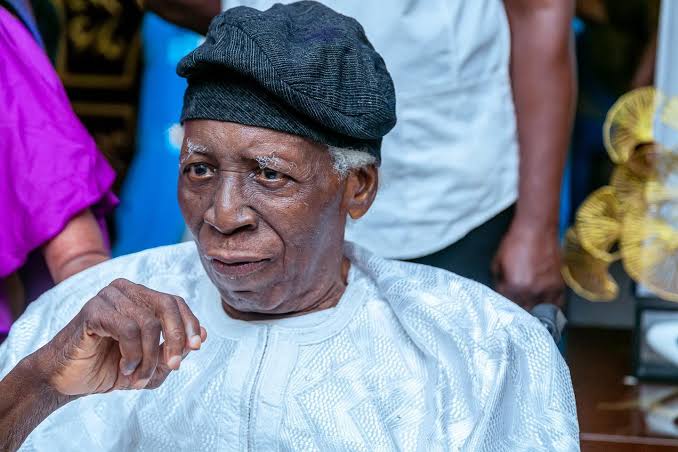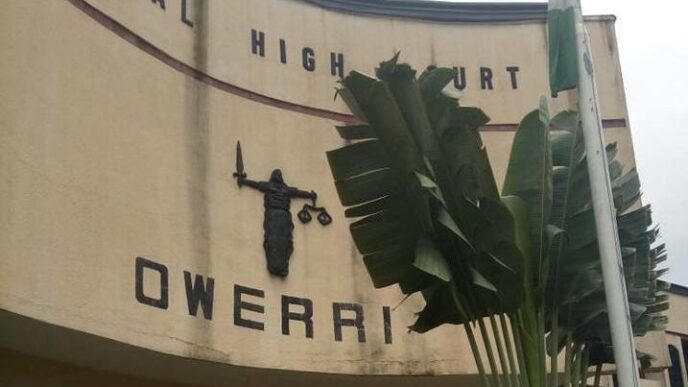Victor Olunloyo
BY BAYO ADEYINKA
It began like any ordinary meeting—a brief farewell exchange outside the Afenifere Oyo gathering. He looked a little frail, recovering from an illness, and mentioned that he had just been robbed. Robbed? My heart sank. In what kind of society do we now live, that an elderly man—an icon—could be subjected to such indignity?
Yet, even in that vulnerable moment, his mind was sharp, his voice strong, his words deliberate. “Come and visit next Saturday, 10 am,” he said from the comfort of his car that afternoon. We agreed. We showed up. And nothing could have prepared us for the world he was about to unveil.
Stepping into his modest living room in Oke-Ado, Ibadan, I was struck speechless. Books—everywhere. On shelves. On chairs. Under the table. Across the floor. The air felt dense with wisdom as if the very walls had absorbed decades of insight.
Advertisement
And then he entered.
Leaning gently on a walking stick, Dr. Victor Omololu Olunloyo walked in—not with the posture of a frail man, but with the quiet command of one who had lived several lifetimes in one. It wasn’t long before I realized: I was not just in the home of a former governor. I was in the presence of a genius.
A man of over 80 years, he could still recall dates and names with frightening accuracy. He read aloud without glasses. He sang the Hallelujah Chorus from memory. He pulled out his undergraduate and PhD theses—knew exactly where to find them among thousands of books—and recited passages like they were etched into his soul.
Advertisement
This was more than a conversation. It was a masterclass.
He showed us a letter dated 1957 from the University of St Andrews in Scotland, recommending a grant renewal. He recited Shakespeare—Hamlet, Richard II—not as a performance, but as part of natural conversation. He pulled Yoruba classics off the shelf and read Igbo Olodumare in flawless cadence. He navigated from engineering theories to Yoruba cosmology with ease.
He showed us his music collection: from Beethoven and Bach to Fela and Hubert Ogunde. He pointed at a particular collection and said the singer was Hitler’s favourite composer. He plucked a flower from his garden and explained centrifugal force by mimicking a spacecraft spinning in space.
Who was this man?
Advertisement
He was the boy from Ibadan whose ancestor, Yejide Olunloyo, was the first woman to attend school in the city in 1853. He was the boy who came 10th out of 2,002 students in a highly competitive entrance exam to Government College Ibadan—while still in Standard 5—when others had completed Standard 6. He was the boy who placed 21st in his first year and rose to first place every year thereafter.
He was the terror of the cricket pitch, the first-class engineering student, the mathematics prodigy, the voracious reader, the reluctant politician, the encyclopedic historian, the cultural archivist, the human time machine.
He was—and remains—one of the greatest minds Nigeria has ever produced.
And yet, the Nigeria he gave his brilliance to never quite knew what to do with it.
Advertisement
As I sat there—listening, marvelling, absorbing—I was haunted by a thought: If Nigeria fails to reach her full potential, it will not be because we lacked greatness. It will be because we ignored it when it was right in our living rooms.
This series is not just a tribute. It is a reminder.
Advertisement
A reminder that we had, among us, a living library.
A reminder that brilliance once walked these streets.
Advertisement
A reminder that we still have time to honour greatness while it breathes—and even when it doesn’t.
Dr. Victor Omololu Olunloyo has now joined the ancestors. But his words, wisdom, and legacy remain.
Advertisement
In the weeks to come, we will tell his story—not just as a man of numbers and power, but as a man of depth, music, culture, and astonishing clarity.
We invite you to journey with us.
Bayo Adeyinka can be contacted via [email protected]
Views expressed by contributors are strictly personal and not of TheCable.








